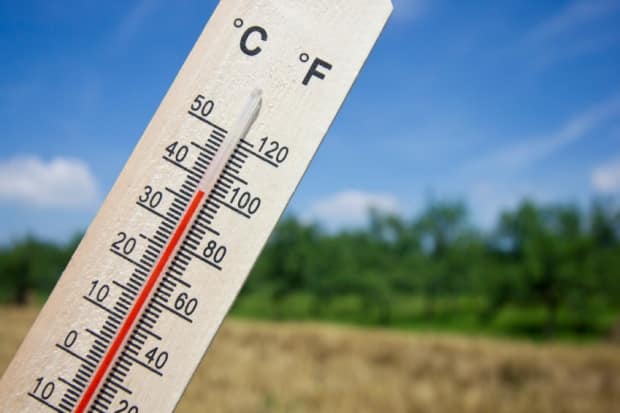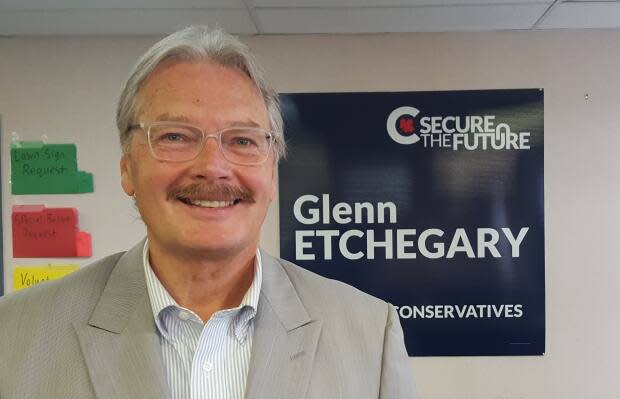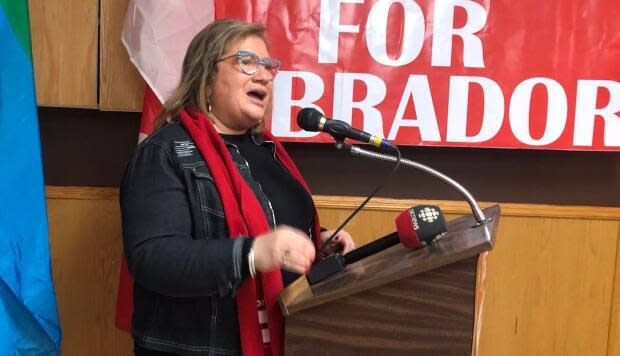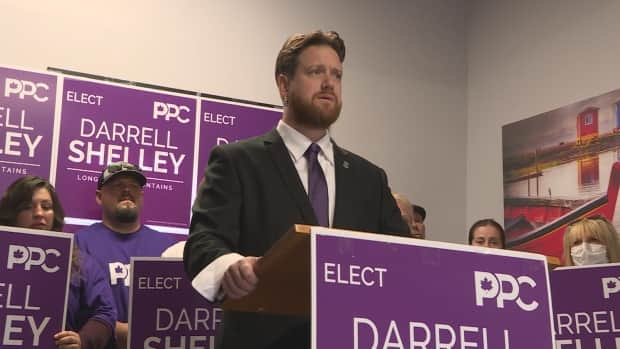This is where 4 N.L. federal candidates stand on climate change

On Sept. 20, polling stations across the country will open for voters to cast their ballots in the federal election.
Among the hot-button issues: climate change.
CBC News spoke to four federal candidates in Newfoundland and Labrador representing the Liberals, Conservatives, New Democrats and the People's Party to get their positions on climate change relief, oil and gas, renewable energy and the carbon tax.
Here's where they stand.
Climate change

It's an urgent matter for Labradorians who are directly impacted by thinning sea ice, says Amy Norman, federal candidate for the NDP in Labrador.
"Inuit and people in the north [are] the canary in the coal mine when it comes to climate change. We up here see the impacts way earlier than the rest of the world," said Norman.
Yvonne Jones, Liberal candidate for Labrador, agrees that thinning sea ice affects people's way of life.
"We're seeing that more so each and every year for us in Labrador. We know that climate change is real because we live it and we experience it," said Jones.

Hurricane Larry, says Jones, has recently shown that disaster relief is a necessity for the entire province. The federal government has invested about $3.5 million in over 68 projects for disaster mitigation, she said.
Glenn Etchegary is the Conservative candidate for the riding of St. John's East. Climate change, says Etchegary, also worries people in Newfoundland.
"We've been to nearly 6,000 households now over the course of the past 10 weeks, and climate change is a regular subject of discussion. There's no question about that. And so it should be," said Etchegary.
Oil and gas
Yet Etchegary emphasizes the importance of the oil and gas sector for the provincial economy, and says ending subsidies isn't the right approach.
"We produce light sweet crude that actually fetches some of the highest prices in the refinery world," said Etchegary.
"If we decided some time soon not to support exploration or to reduce our production capability, it would only be replaced by countries [with] some of the worst carbon footprints on the planet."
Darrell Shelley is the PPC candidate for Long Range Mountains. He thinks more oil refineries should operate locally.
"It would … help create more jobs and create a cleaner profile for our oil, so that we don't have to ship it all the way around the world and then buy it back from other countries," said Shelley.
Renewable energy

Jones says ending oil subsidies altogether is unrealistic, but also wants to offer subsidies for clean technology and retrain workers.
"I don't think you'll ever see us without a reliance on oil and gas … I still have more communities than any other region of the province that are dependent upon diesel generation," said Jones.
"Do I think that's going to change overnight or immediately? It's not."
Norman, meanwhile, wants oil subsidies and exploration to end and ensures that jobs wouldn't be affected. "A lot of the jobs needed for offshore oil, they're exactly the same jobs you would need to convert to offshore wind," she said.
"So we say, move all of our offshore oil rigs into offshore oil wind farms."
All candidates say they would commit to renewable energies and to the improvement of electric vehicle infrastructure in the province.
While the completion of the island-spanning, fast-charging network for electric vehicles at the end of August has made it possible for electric vehicle owners to cross Newfoundland, Labrador is still lagging behind.
Carbon tax
Another contentious issue: the carbon tax.
Shelley, the PPC candidate, says he doesn't agree with a carbon tax, and thinks Canada shouldn't be in the Paris Agreement.
"It cost me over $100 to fill my truck right now. I don't think that that's fair. I think Newfoundland and Labrador is not contributing to global emissions on the same scale as China," said Shelley.

"We're paying carbon tax for other countries that are allowed to pollute over 10 times the amount of what we are here."
According to the Canada Revenue Agency, the federal carbon tax translates to an extra 8.8 cents per litre of regular gasoline for the average consumer. Gas prices in most of the province have hovered around $1.50 per litre in recent weeks.
The Liberals, Conservatives and NDP would all raise the carbon tax to varying degrees.
Read more from CBC Newfoundland and Labrador

